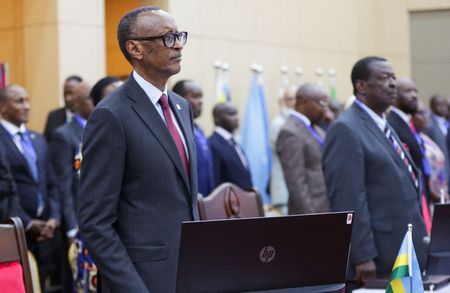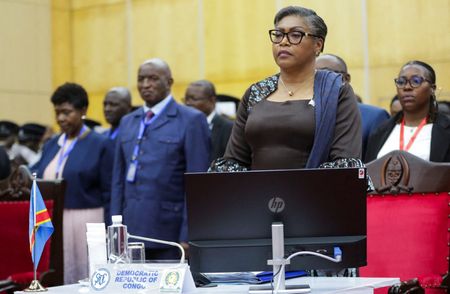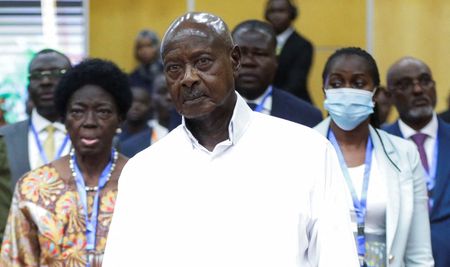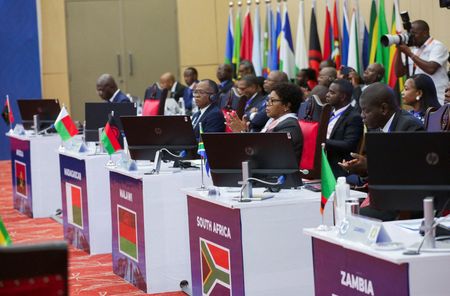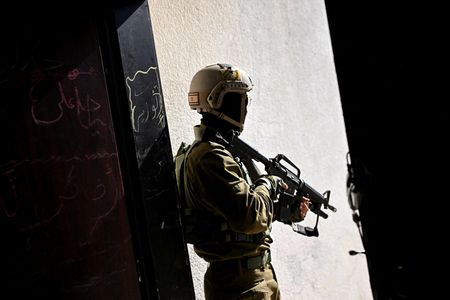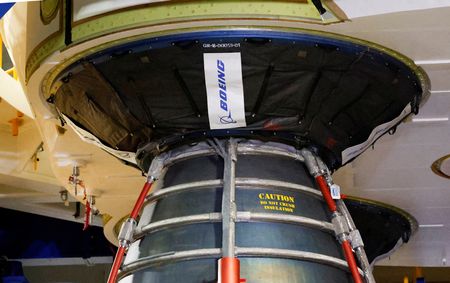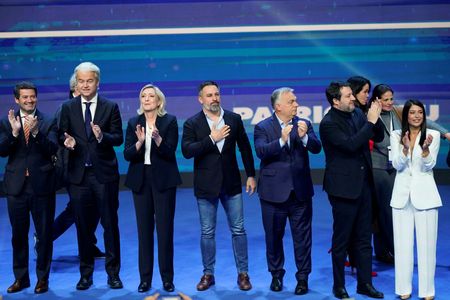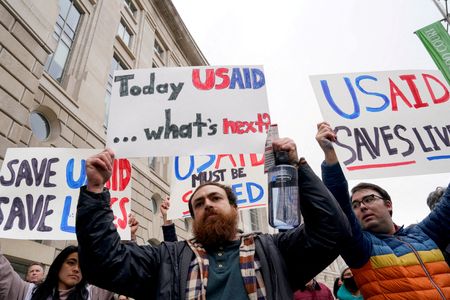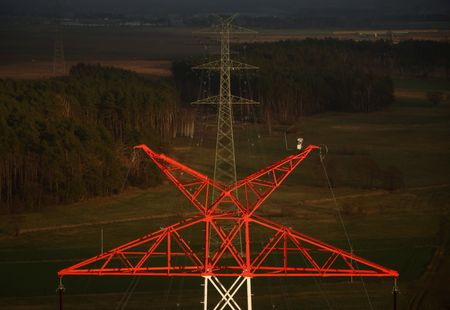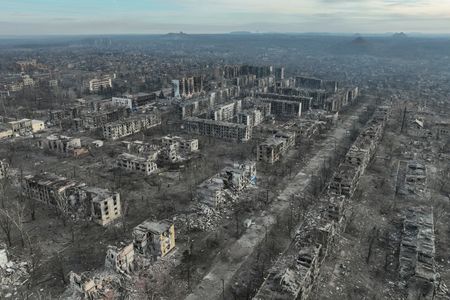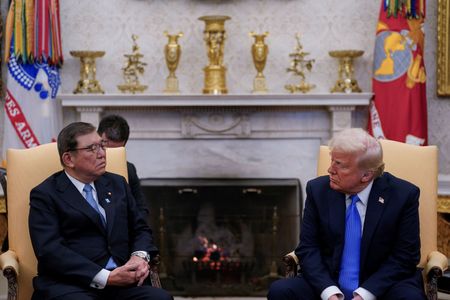By David Lewis and Nuzulack Dausen
DAR ES SALAAM, Tanzania (Reuters) -Leaders at an unprecedented joint summit of Eastern and Southern African blocs aimed at defusing the crisis in Eastern Congo urged all parties to hold direct talks, including with Rwanda-backed rebels whose advance has fanned fears of a wider war.
In late January, the M23 rebels captured Goma, the largest city in eastern Democratic Republic of Congo – the worst escalation of fighting in more than a decade that has left thousands dead. Despite announcing a unilateral ceasefire, they have continued to march south towards the city of Bukavu.
“We must resist the temptation to think that we can somehow shoot or bombard our way to a solution,” said Kenyan President William Ruto at the opening ceremony for the summit, which was attended by eight heads of state, including Rwanda’s Paul Kagame. Congo’s Felix Tshisekedi joined via video link.
Kinshasa has repeatedly refused to talk directly to the M23, and there was no immediate response from the Congolese delegation to the joint communique from the summit in Dar es Salaam.
The first-ever summit of both Eastern and Southern African blocs reflects the continent’s deep concern over the crisis and the standoff between Congo and neighbouring Rwanda, which denies allegations it is fuelling the conflict with its own troops and weapons.
The two groupings have, so far, been broadly divided over the conflict, with the eastern bloc closer to Rwanda’s call for dialogue and southern countries backing Congo and angry over the deaths of peacekeepers, experts and diplomats said.
Leaders called for the withdrawal of “uninvited foreign armed forces from the territory of the DRC” and emphasised their commitment to safeguarding Congolese sovereignty.
They also agreed to merge the two existing peace processes and to consider bringing in additional facilitators from other parts of the continent. They urged the two blocs’ defence chiefs to meet within five days to “provide technical direction on immediate and unconditional ceasefire”.
Over the past month, M23’s lightning advances have expanded its control over North Kivu province’s lucrative coltan, gold and tin ore mines, uprooting thousands in what was already one of the world’s most dire humanitarian crises.
Aid groups have been helping to relieve overwhelmed hospitals as health workers race against time to bury the bodies of at least 2,000 people killed in the battle for Goma, amid concerns of disease spreading.
Prosecutors at the International Criminal Court say they are closely monitoring the bloodshed, where reports are emerging of rape, gang rape and sexual slavery, according to the U.N. human rights office.
Ahead of the summit, the United States warned of possible sanctions against Rwandan and Congolese officials, further raising the stakes for finding a solution to a conflict that is rooted in the long fallout from the 1994 Rwandan genocide and the struggle for control of Congo’s mineral resources.
The well-equipped M23 is the latest in a long line of ethnic Tutsi-led rebel movements to emerge in Congo’s volatile east. Congo’s government says it is a Rwandan proxy, which the rebel group denies.
Rwanda rejects accusations that thousands of its troops are fighting alongside M23. But it says it is defending itself against the threat from a Hutu-led militia, which it says is fighting alongside the Congolese military.
(Additional reporting by Elias Biryabarema and Sonia RolleyWriting by Hereward Holland and Alessandra Prentice; Editing by Ammu Kannampilly, David Evans and Mark Potter)

